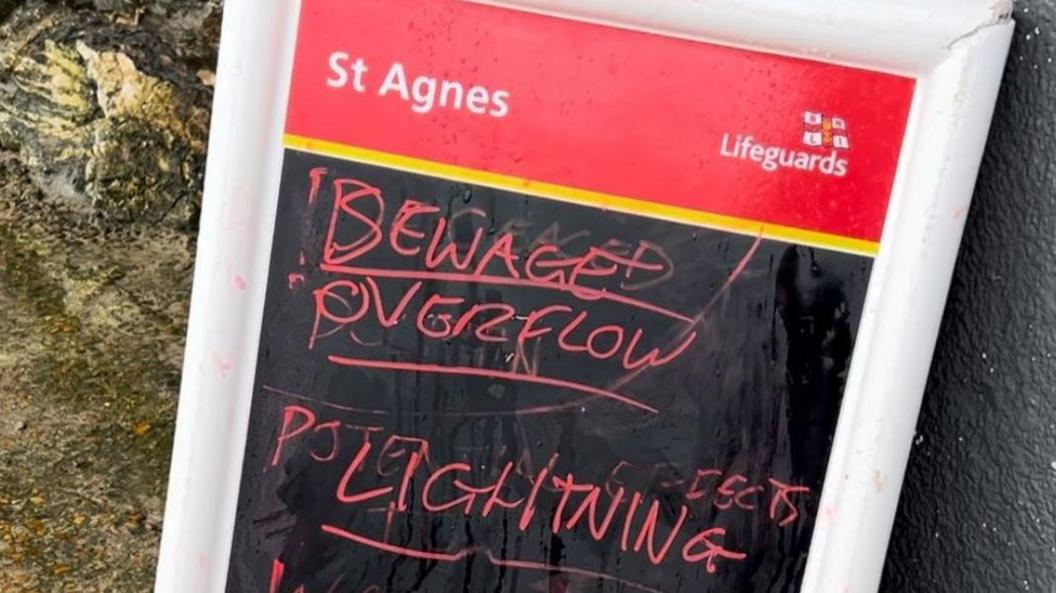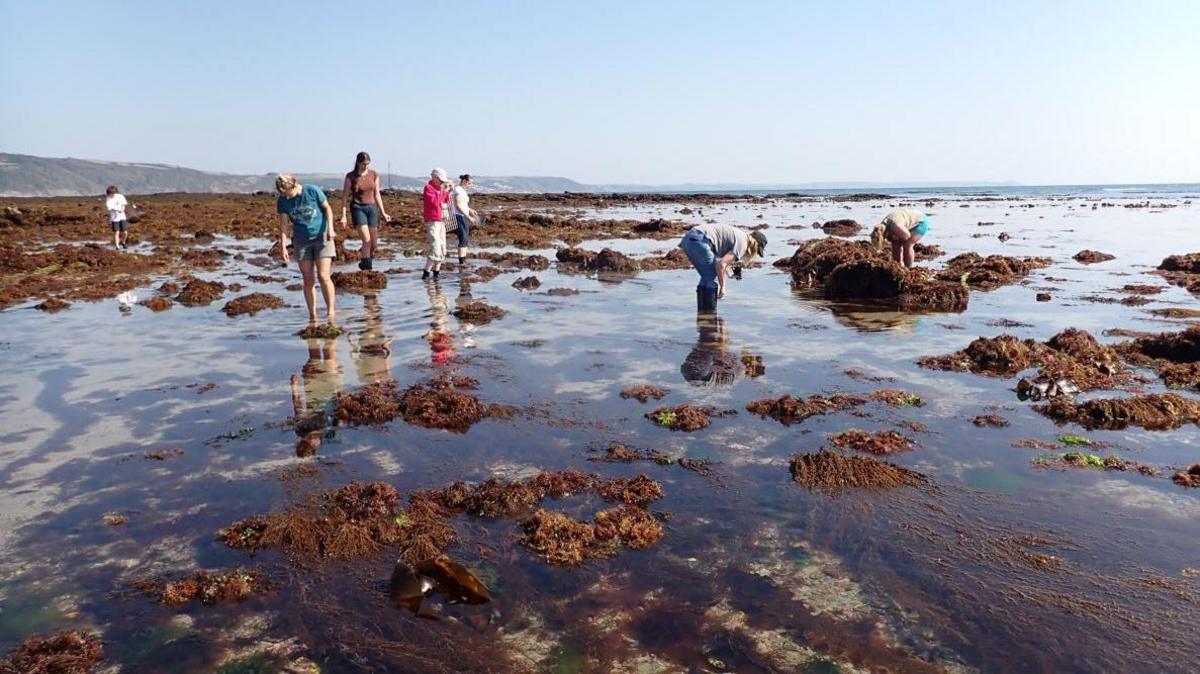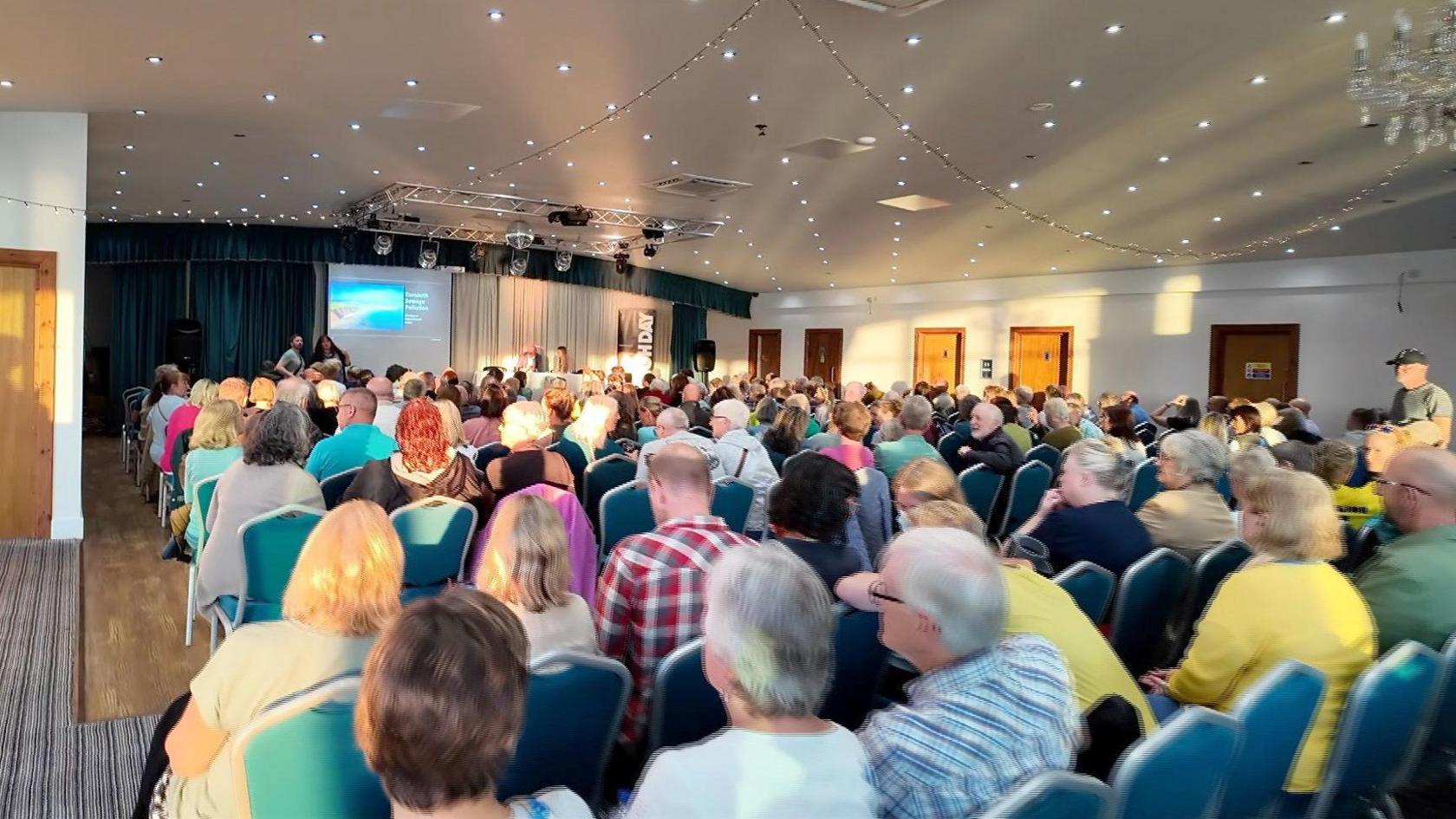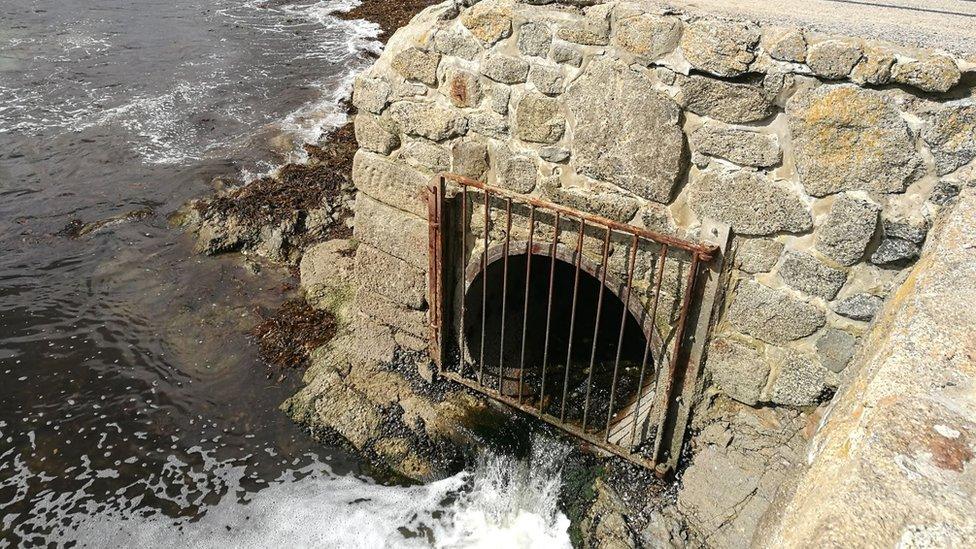Conservation event cancelled over sewage in sea

The Cornwall Wildlife Trust event was cancelled due to the incident
- Published
Cornwall Wildlife Trust said it was forced to cancel an annual wildlife survey for the first time in 13 years due to sewage in the sea.
Volunteers turned up to carry out a survey at Trevaunance Cove but the trust said it was "shocked" by the state of the water.
Matt Slater, marine conservation officer at Cornwall Wildlife Trust and organiser of the Shoresearch survey at the weekend, said: "The conditions were just not safe enough to run the event."
South West Water (SWW) told the BBC a range of factors affected water quality, but recent heavy rainfall had caused storm overflows in St Agnes to activate "in line with their permits".

Volunteers carried out successful Shoresearch surveys at other locations
It added: "We know our customers want to see immediate action to reduce the use of storm overflows.
"This is an absolute priority and as part of our investment of £2.8bn from 2025-2030, we will be the first water company to meet the government’s target of less than 10 spills a year per overflow by 2040 - 10 years ahead of our 2050 deadline.”
It said storm overflows were a combination of surface water and sewage, with surface water making up the majority of overflows.
Shoresearch is a citizen science project of the Wildlife Trusts that trains volunteers to carry out survey work. Shoresearch week is a five-day marine wildlife monitoring survey carried out over the autumn equinox spring tides.
The project monitors the health of the shore and provides data that allows changes to be tracked.
'Woefully inadequate'
Gemma Newman, marine assistant at Cornwall Wildlife Trust, said: "The smell was overpowering and none of our usually enthusiastic volunteers were keen to continue with the survey, it was shocking."
She said successful surveys had been carried out at Looe, Polzeath and Helford, before the cancellation at St Agnes.
It is hoped the survey can be rescheduled for the next spring tide, she added.
Mr Slater from the trust said it was "disappointing but not surprising".
He added: "Our sewage system is woefully inadequate and sewage spills like this occur whenever there is any rain, all around Cornwall’s coast."
He said incidents like this were having a "massive impact" on the health of marine ecosystems.
The trust said Shoresearch surveys showed non-native species like devils tongue weed were increasing, while cold water species were declining, due to climate change.
Follow BBC Cornwall on X (formerly Twitter), external, Facebook, external and Instagram, external. Send your story ideas to spotlight@bbc.co.uk, external.
Related topics
- Published17 September 2024

- Published1 April 2023
